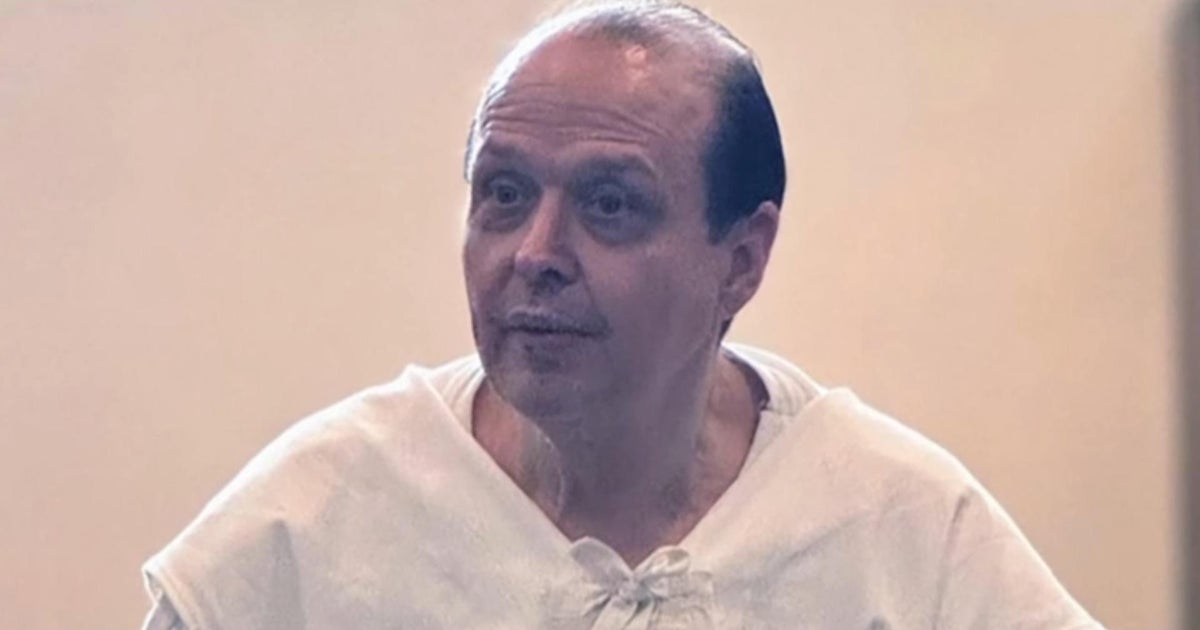CBS News
How the Supreme Court might act in the 2024 election — here are the cases that could land before the court
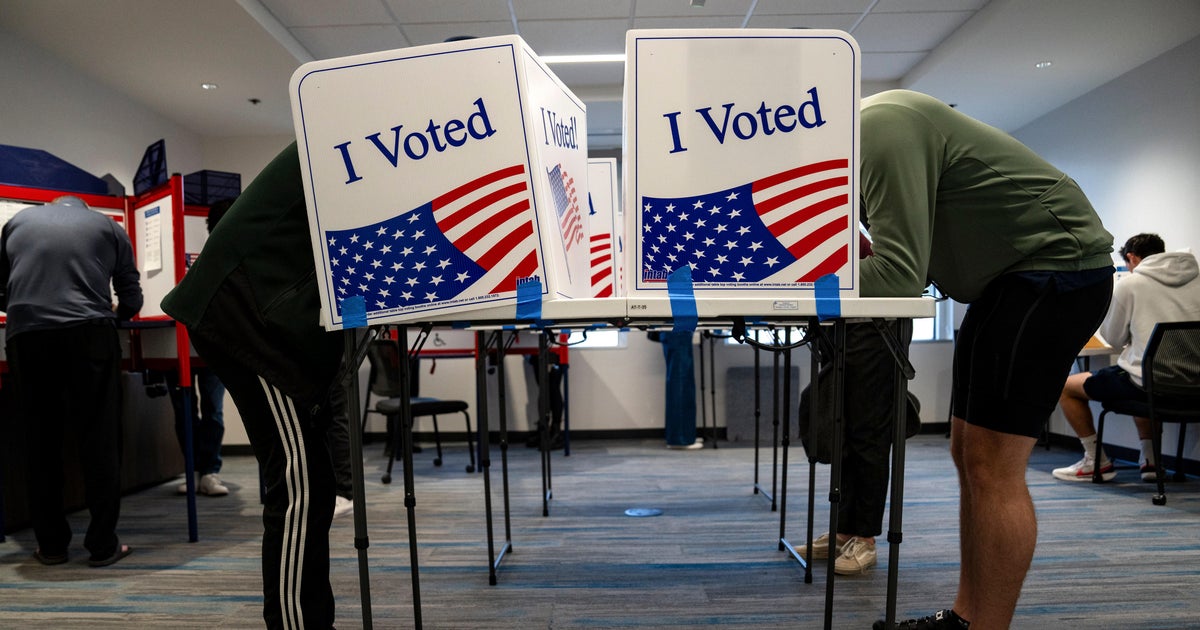
Washington — With the election now just days away, the battle for the presidency is being waged not just at the ballot box but also in courtrooms in an election cycle marked by scores of lawsuits brought by both parties.
While many of the cases involve disputes over state laws that will be decided by state courts, some cases may wind up before the U.S. Supreme Court, though many observers believe the court will try to stay out of the election.
Ever since the high court’s controversial ruling in Bush v. Gore in 2000, the possibility that the Supreme Court might decide a close presidential contest has loomed over electoral politics. And while that improbable scenario is unlikely to repeat, the proliferation of lawsuits this cycle has increased the odds that the Supreme Court may be forced to intervene yet again.
The high court declined to step into long-shot disputes from former President Donald Trump’s allies that challenged the results of the 2020 election, and so far during the 2024 general-election cycle, it has largely rejected chances to alter the status quo, suggesting a reluctance to intervene. Although the court partially intervened in a dispute over a proof-of-citizenship requirement in Arizona, it declined to grant relief in the Green Party’s bid to put Jill Stein on the Nevada ballot and Robert F. Kennedy, Jr.’s request to reinstate him to the New York ballot. Just last week, Kennedy submitted two more requests — this time, to be removed from the Wisconsin and Michigan ballots — that the Supreme Court is expected to deny, too.
With early voting underway in more than three dozen states — and millions of votes cast so far — the Supreme Court typically abides by a principle, stemming from a 2006 decision, under which courts should exhibit caution before changing election rules too close to an election to avoid confusing voters and election officials with late-stage changes.
That doesn’t mean the losing parties will refrain from asking the Supreme Court to hear their appeals, even though lower courts have ruled that many of these cases were filed too late.
“Some of the challenges could have and should have been brought a long time ago. Those the court won’t entertain,” said Alan Morrison, an associate dean at George Washington Law School.
But the court may be inclined to act in cases that couldn’t have been resolved sooner or where lower-court rulings could have dramatic consequences. And post-Election Day cases could arise from allegations of voter fraud, some of which “are inevitably late and the court is going to decide what to do with them,” Morrison said.
Trump and his GOP allies filed more than 60 lawsuits in federal court alleging voter fraud following the 2020 contest. The vast majority were rejected or withdrawn. This cycle, the Republican National Committee has filed 130 suits in 26 states ahead of the election, it said. The Democratic National Committee did not return a request for comment.
With close to 200 cases brewing across the country, many in the battleground states that will decide the election, here are some that could land before the justices:
Removal of potential noncitizens from voter rolls in Alabama and Virginia
The Justice Department filed lawsuits against Virginia and Alabama over their efforts to remove noncitizen voters from registration rolls, which federal prosecutors say violates the National Voter Registration Act.
A provision of that law, known as the Quiet Period Provision, requires states to complete programs that systematically remove ineligible voters from registration lists by 90 days before the election. The Justice Department argued that Alabama began an unlawful process for removing roughly 3,000 potential noncitizens on Aug. 13, 84 days before the Nov. 5 election. Prosecutors said more than 700 of those people have re-registered and returned to active status but “several hundred or even thousands more” remain inactive and risk disenfranchisement.
A federal judge blocked Alabama earlier this month from continuing the program to remove ineligible voters from registration lists and stressed that the order does not restrict the secretary of state’s ability to remove noncitizens from Alabama’s voter rolls. She also ordered the state to restore deactivated voters.
The Justice Department filed another lawsuit against Virginia earlier this month. It targeted Virginia Gov. Glenn Youngkin’s executive order that created a program to remove from state voter rolls people who tell the Department of Motor Vehicles that they are noncitizens and who do not verify their citizenship with local registrars after they are notified they will be removed from voter rolls. Youngkin announced the program exactly 90 days before Election Day, and the Justice Department argues that these removals are prohibited during the so-called quiet period.
A federal judge on Friday blocked Virginia from continuing its program and ordered the state to restore the roughly 1,600 voters who were purged to registration rolls. The judge said the state must send notices to those who had their registrations canceled under the state’s program.
Virginia officials asked the 4th Circuit to pause the district court’s order, and on Sunday, the appeals court largely declined their request. The three-judge panel said in a brief order that it is “unpersuaded” by the state’s argument that its program doesn’t violate the National Voter Registration Act.
They then asked the Supreme Court on Monday to pause the district court’s order and requested it act quickly — by Tuesday.
Late-arriving mail ballots in Mississippi
Under a Mississippi law passed in 2020, election officials count mail ballots that are received up to five business days after Election Day, so long as they are postmarked on or before Election Day. Seventeen other states and the District of Columbia have laws like Mississippi’s and accept ballots postmarked by Election Day that arrive days after.
The Mississippi Republican Party, the Republican National Committee, and two Mississippi voters sued the state and county election officials in January, arguing this practice violates a federal law establishing a uniform, nationwide Election Day by extending the election into the following week.
They asked a federal district court to invalidate the Mississippi law and block the state from enforcing it. But voting rights groups that sought to intervene in the case argued that striking down the law threatened to disenfranchise voters.
The district court sided with the state election officials in July, and Republicans appealed to the U.S. Court of Appeals for the 5th Circuit, which reviews cases from Louisiana, Mississippi and Texas and is a favored venue for conservative litigants.
But in a win for Republicans, the appeals court on Friday struck down the Mississippi measure, finding it is preempted by federal law. The three-judge panel did not say how the state should handle late-arriving ballots for next week’s election and sent the case back to the district court to determine how to proceed given the close proximity to Election Day.
Elections officials could ask the Supreme Court to pause the 5th Circuit’s ruling.
Mail ballot procedures in Pennsylvania
Both parties have taken issue with mail ballots in Pennsylvania in two high-stakes cases. The Pennsylvania Republican Party and the Republican National Committee sued all 67 county boards of elections and the secretary of state to challenge Pennsylvania’s notice-and-cure policy, under which voters who cast ballots by mail are notified about and given a chance to fix technical errors with their ballots. And Democrat-affiliated groups challenged Pennsylvania’s policy of not counting mail ballots with incorrect or unwritten dates on the outer ballot envelopes.
The Pennsylvania Supreme Court declined to hear either challenge earlier this month, citing the parties’ delay in bringing them. The decision left both sets of policies in place — and the merits of both disputes unresolved.
If the presidential election comes down to a tight margin in fiercely contested Pennsylvania, Republicans and Democrats could use these unresolved concerns to challenge the tally of mail ballots in post-election challenges — which could very likely make their way up to the Supreme Court.
That said, not all mail-ballot challenges have been left unsettled. In a separate case, two voters in Butler County argued the county board was wrong to reject provisional ballots they cast during the primary after failing to enclose their mail-in ballots in secrecy envelopes. Both the Pennsylvania Republican and Democratic Parties intervened in the case.
A state trial court upheld the board’s decision not to count the provisional ballots, but the Pennsylvania Supreme Court sided with the voters and concluded that boards of elections must count provisional ballots cast by voters whose mail-in ballots are rejected for lacking secrecy envelopes.
Republicans asked the Pennsylvania Supreme Court to pause that decision while it seeks emergency relief from the U.S. Supreme Court.
Overseas and military voters in Pennsylvania, Michigan and North Carolina
Under a federal law known as the Uniformed and Overseas Citizen Absentee Voting Act, or UOCAVA,, Americans who live abroad may vote absentee in their state of prior residence. The law affects millions of Americans, including many members of the military and their relatives.
But Republicans filed three lawsuits to challenge the implementation of this law in federal court in Pennsylvania and state courts in Michigan and North Carolina.
In Pennsylvania, six Republican House members sued state officials for issuing guidance to overseas voters that exempts them from providing proof of their identities. In Michigan, the state Republican Party and the Republican National Committee sued state officials for permitting the non-Michigander relatives of residents to vote under UOCAVA procedures, which they said violates a state constitutional provision that allows only residents to vote in Michigan. In North Carolina, the North Carolina Republican Party and the Republican National Committee filed a lawsuit raising similar arguments.
State court judges in Michigan and North Carolina rejected the suits from Republicans. The RNC is appealing the North Carolina decision. In the Michigan case, Judge Sima Patel criticized the GOP challengers for what she said is an “11th hour attempt to disenfranchise” the spouses and dependents of overseas voters.
The federal judge hearing the Pennsylvania case has yet to rule.
In all three instances, the losing parties must make several stops before reaching the Supreme Court. The federal lawsuit from Pennsylvania would go to an intermediate appeals court first, while the Michigan and North Carolina cases would be heard by state appellate and supreme courts before arriving at the nation’s highest court.
Voter rolls in Michigan
The Republican National Committee and two voters filed a lawsuit against top election officials in Michigan in March alleging that the state failed to abide by the requirements of the National Voter Registration Act by having more active registered voters in some counties than residents over the age of 18.
Republicans claimed the state does not have accurate voter rolls and argued that failing to comply with voter-list maintenance obligations required by federal law threatened to undermine the integrity of the election by increasing the chance for allegedly ineligible voters to cast ballots.
A federal district judge dismissed the lawsuit earlier this week on technical grounds, finding that neither the RNC nor the voters had the legal right to sue. The judge also found that the Republicans failed to show “more than a mere possibility of misconduct.”
Hurricane-related anything
Disaster-relief cases constitute one exception to the presumption against judicial activity before elections. These suits present urgent problems, and because they arise from unpredictable emergencies, litigants are not penalized for failing to raise their claims sooner.
States across the South, including Florida, North Carolina, and Georgia, are reckoning with obstacles to voting access brought on by the devastation of Hurricanes Helene and Milton. In North Carolina alone, 1.5 million people live in areas ravaged by storms. In such places, the postal service has been unable to deliver and pick up mail, and physical voting facilities have been damaged or destroyed.
Still, in North Carolina, more than 2 million voters have cast ballots during the state’s early voting period, which began Oct. 17.
So far, no major cases look like they’re destined for Supreme Court review. Notably, Democrat-affiliated activist groups sued Florida Gov. Ron DeSantis to extend voter registration, because the Oct. 7 deadline fell between the two hurricanes. During that time, many Floridians were without power or outside the state after evacuating. A federal court rejected that challenge, and the plaintiffs have not yet appealed. But with six more weeks left in hurricane season and repairs continuing throughout the South, the possibility of additional litigation remains.
CBS News
What happens to Trump’s criminal cases if he wins the election? Experts weigh in.
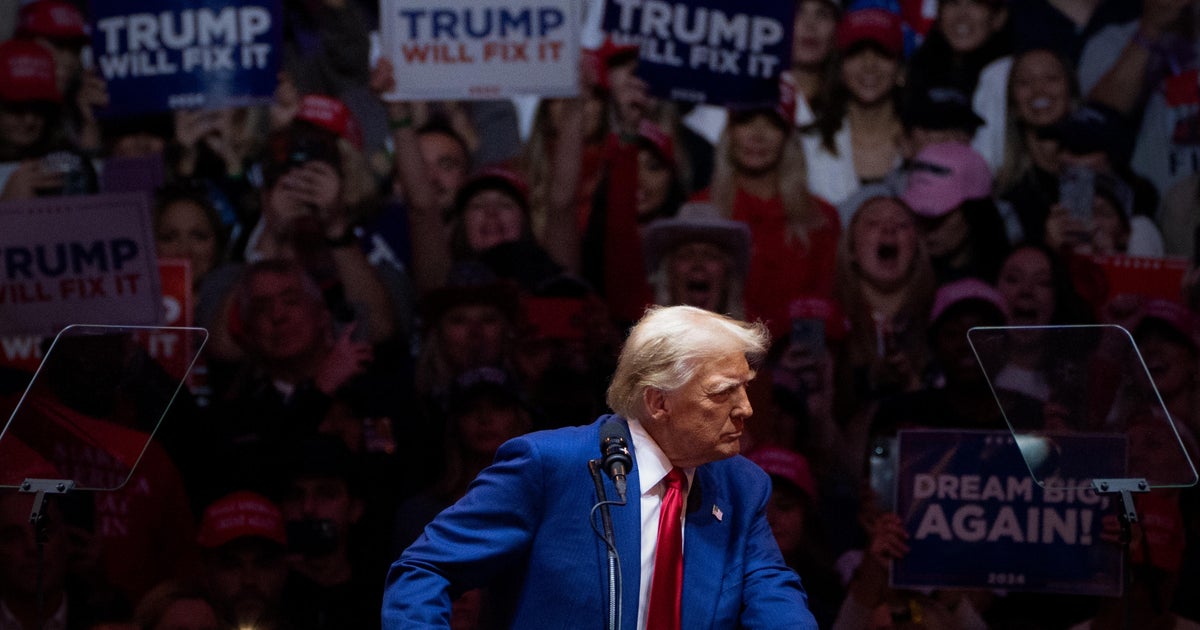
After the 2024 election next week on Nov. 5, former President Donald Trump will be met with one of two fates: a return to the Oval Office, or years of criminal court proceedings, and perhaps incarceration, experts say.
Perhaps no candidate in U.S. history has faced such stark personal stakes on Election Day.
Trump’s third campaign for president has played out alongside the four criminal cases against him — two in halting fits and spurts, one toward dismissal and one moving relatively swiftly toward a potential conviction.
Where they go from here could very well depend on whether Trump is elected.
New York “hush money” case
A unanimous jury found Trump guilty in May of 34 felony counts of falsifying business records. The seven-week trial focused on a scheme Trump signed off on, while in office as president, in which he and others covered up a payment to an adult film star to prevent her from airing a claim that she and Trump had a sexual encounter years before.
The $130,000 payment was made days before the 2016 presidential election. The consequences are scheduled to be revealed days after the 2024 election.
Trump’s sentencing, initially scheduled for July 11 and then postponed again in September, is set for Nov. 26.
Former New York prosecutor Bennett Gershman said even if Trump wins the election, “I don’t see any reason in law for why the sentencing would be delayed.”
Whether he’s president-elect, or once again a defeated candidate, one thing is relatively certain, said Gershman, who’s a professor at Pace University’s law school. Even if Trump loses the election and is sentenced to time in jail or prison, it could be years before he’s incarcerated.
“It’s going to take time for the appeal to wash out,” said Gershman. And if Trump wins, appeal proceedings or the sentence itself, would likely be delayed until after his presidency.
“He’d be a president with 34 felony convictions, and maybe he’s a felon who’s sentenced to two or three years in jail, and he’s running the nation,” Gershman said. “This is all new stuff, but it’s not out of fantasy land anymore.”
The special counsel cases
2020 election
Trump was indicted in August 2023 in a case brought by special counsel Jack Smith. He was charged with four counts stemming from his conduct after the 2020 election, as he and others sought to turn over the results, which showed Trump had lost to Joe Biden.
The case ground to a halt as Trump brought a claim of presidential immunity to the Supreme Court, which in July ruled former presidents are shielded from prosecution for official acts taken while in the White House.
In August, a federal grand jury returned a superseding indictment that narrowed the allegations against him to comply with the high court’s new framework for presidential immunity.
Handling of sensitive documents
Smith is also overseeing a prosecution in a Florida federal court in which Trump is accused of mishandling sensitive government records after leaving the White House in January 2021. That case was dismissed in July by U.S. District Judge Aileen Cannon, who said in a 93-page order that she concluded Smith had been appointed unlawfully.
Smith’s office appealed that decision, arguing Cannon ruled incorrectly. Trump’s team has seized on her decision and argued it provides grounds to similarly dismiss the election case Smith brought.
The arguments from both sides may be for naught if Trump wins the election, according to CBS News legal analyst Rikki Klieman, who said his administration’s Justice Department would likely drop the cases.
“If Donald Trump becomes President of the United States, it would logically follow that his attorney general and the new Department of Justice would dismiss the cases that special counsel Jack Smith brought,” Klieman said.
Trump himself has said if he’s elected, Smith will be out of a job.
“It’s so easy — I would fire him within two seconds,” Trump said during an Oct. 24 radio interview.
Fulton County, Georgia, case on 2020 election
Trump was among 19 people charged in a state case in Georgia in August 2023, accusing the group of a racketeering enterprise that sought to illegally thwart Trump’s election defeat in the state.
Five of the 13 counts against Trump have been dismissed, though Fulton County D.A. Fani Willis has appealed the dismissal of three and is likely to appeal the others.
The case has been on hold since June, when the state’s Court of Appeals agreed to consider whether Willis should be removed from the case for having had a romantic relationship with former special prosecutor Nathan Wade.
If Trump wins, the Fulton County criminal case will go from on hold to “a grinding halt,” said Emory University law professor John Acevedo.
“There is that right that all defendants have to confront witnesses, but you can’t really have the president of the United States sitting in an Atlanta courtroom,” Acevedo said.
One person who shares that view is Trump’s lead attorney in the Georgia case, Steve Sadow. He said during a December 2023 hearing in the case that if Trump won, any trial would need to be delayed until at least 2029.
Sadow cited the Constitution’s Supremacy Clause, and argued the state’s prosecution would essentially be outranked by the federal government’s needs while Trump is in the White House.
“I believe that the supremacy clause and his duties as president of the United States [mean] this trial would not take place at all until after his term in office,” Sadow said.
CBS News
Threat actors likely to take advantage of election fraud claims to fuel violence, bulletin warns
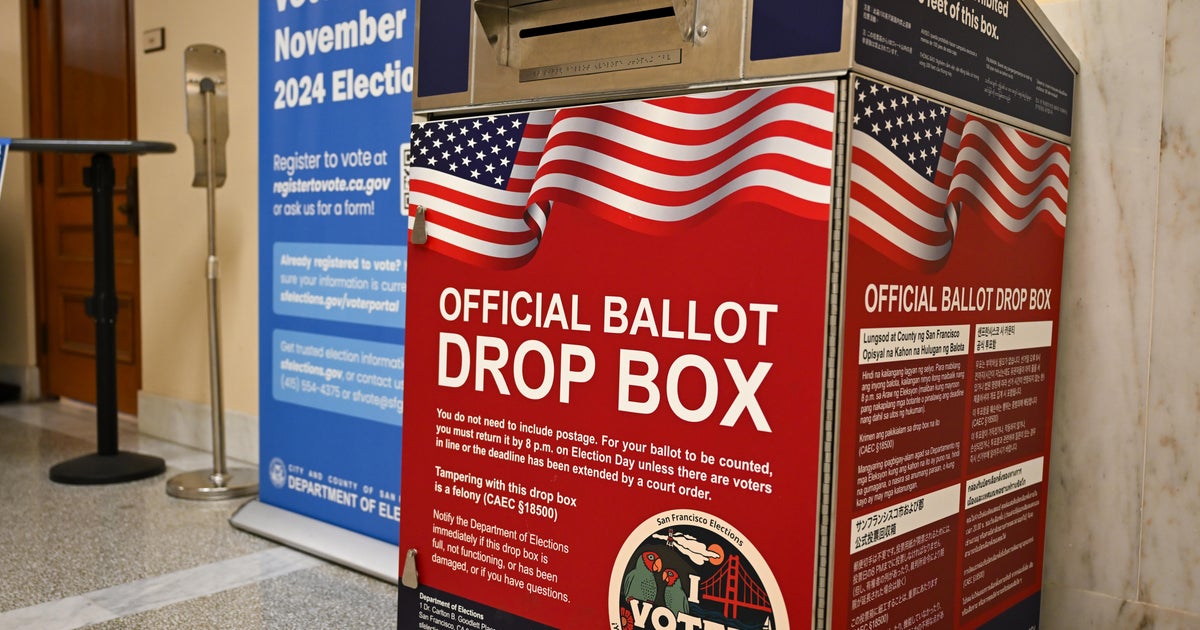
Washington — Threat actors are likely to leverage claims of election fraud to drive election-related violence, according to a federal bulletin obtained by CBS News.
“Some individuals are calling for violence as a response to election fraud narratives, primarily targeting election officials and populations that threat actors perceive as threatening the integrity of the 2024 general election,” the bulletin says.
The bulletin, which was published Monday by the Department of Homeland Security, warned that online forums used by domestic violent extremists contain threats of violence against election officials and infrastructure “to prevent perceived fraud or to retaliate against it.” Many of the posts are promoting narratives about election fraud linked to mail-in ballots or electronic voting machines, it said.
“Some individuals motivated by this narrative have stated their intent online to intimidate voters or elections staff through surveillance of election infrastructure or personnel, including by armed individuals,” the bulletin continued. “Some of these online users have encouraged violence against ideological opponents related to the use of mail-in voting while others promoted methods of sabotaging ballot drop boxes. Other individuals are using online forums to call for violence against local election officials in response to allegations of fraud.”
Federal investigators believe there are several factors that could increase threat actors’ perceptions of election fraud, including “a contested or close election, variations in state election laws and regulations impacting the release of results, unforeseen events that delay vote counting, or technological or administrative errors impacting vote counting processes.”
The warning comes as ballot boxes have been set on fire in Portland, Oregon, and Vancouver, Washington, destroying hundreds of ballots. A number of mail-in ballots were also damaged when a U.S. Postal Service mailbox was recently set on fire in Phoenix, Arizona. The incidents are under investigation.
Last week, intelligence and law enforcement agencies said Russian actors had “manufactured and amplified” a video purporting to show someone destroying mail-in ballots in Bucks County, Pennsylvania “as part of Moscow’s broader effort to raise unfounded questions about the integrity of the U.S. election and stoke divisions among Americans.”
A joint intelligence bulletin issued earlier this month by the Department of Homeland Security and FBI warned of the potential for domestic violent extremists “with election-related grievances” to target political candidates and elected officials in the coming weeks. It said domestic extremists “pose a threat of violence to a range of targets directly and indirectly associated with elections through at least the presidential inauguration” on Jan. 20, 2025.
A Department of Homeland Security spokesperson said Monday that the U.S. remains in a “heightened” threat environment.
“The Department continues to advise federal, state, and local partners to remain vigilant to potential threats and encourages the public to report any suspicious activity to local authorities,” the spokesperson said.
CBS News
Republicans turn to Supreme Court in dispute over Pennsylvania provisional ballots
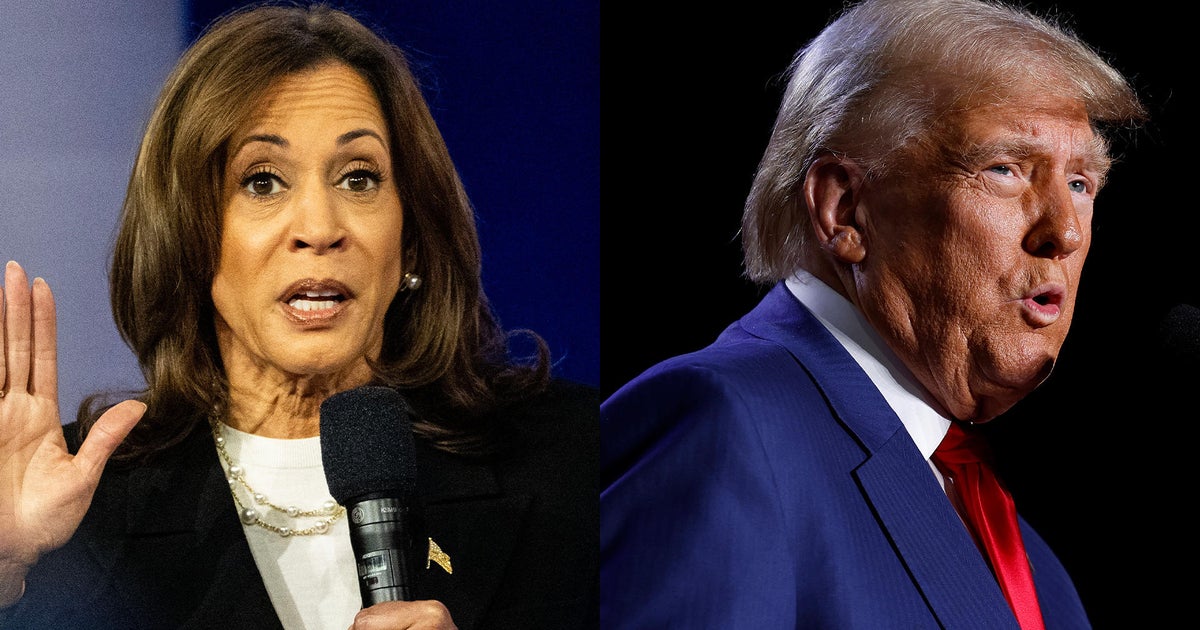
Washington — The Republican National Committee asked the Supreme Court on Monday to put on hold a state high court decision that said election officials must count provisional ballots cast by a voter whose mail ballot was rejected because it was returned without a secrecy envelope.
The request for emergency relief sought by Republicans is the second involving the 2024 election to be filed with the Supreme Court on Monday. Earlier in the day, Virginia officials asked the high court to allow it to move forward with removing roughly 1,600 alleged noncitizens from state voter rolls.
Both requests for the Supreme Court’s intervention come just over a week before Election Day and as millions of voters across the country have already cast their ballots early, either in person or by mail. In Pennsylvania, more than 2 million mail ballots have been requested, and roughly 1.4 million returned, according to the University of Florida Election Lab.
Pennsylvania is a crucial state that could decide whether Vice President Kamala Harris or former President Donald Trump wins the White House. Republicans warned that if the Pennsylvania Supreme Court’s ruling is left untouched, “tens of thousands” of provisional votes may be counted. In the 2020 election, when many states made it easier to vote by mail because of the COVID-19 pandemic, roughly 1% of returned mail ballots in Pennsylvania were rejected because they did not have secrecy envelopes, according to an analysis from the MIT Election Data and Science Lab.
Republicans said that if the justices determine that a full stay is not warranted, they should order provisional ballots cast by voters whose mail ballots were defective to be set aside and if counted, they should be tallied separately and not included in the official vote count while the legal battle plays out.
“This case is of paramount public importance, potentially affecting tens of thousands of votes in a state which many anticipate could be decisive in control of the U.S. Senate or even the 2024 presidential election,” lawyers for the Republicans wrote. “Whether that crucial election will be conducted under the rules set by the General Assembly or under the whims of the Pennsylvania Supreme Court is an important constitutional question meriting this court’s immediate attention.”
The Pennsylvania case arose after the state’s primary election in April, when two voters from Butler County submitted mail ballots but failed to enclose them in secrecy envelopes. The state also requires voters to sign and date the mailing envelopes containing their ballots. Failure to comply with these requirements renders the mail ballot invalid.
Because the voters returned their ballots without secrecy envelopes, they were notified by the Butler County Election Board that their votes might not be counted and were advised that they could cast provisional ballots during in-person voting, and both voters did so.
But the county board of elections did not count those provisional ballots. After learning they were rejected, the voters sued in state court, arguing that the board was wrong to reject their ballots. The trial court disagreed, finding that the state’s election code prohibits individuals who submit mail ballots that are “timely received” from having their provisional ballots tallied. A voter’s error in returning a mail ballot was not found to be an acceptable reason to count a provisional ballot.
But the voters prevailed before the Pennsylvania Supreme Court, which ruled in a 4-3 decision that boards of elections must count provisional ballots cast by voters whose mail ballots are rejected for lacking secrecy envelopes.
While the dispute involves voters from Butler County, the Pennsylvania Department of State issued guidance last week stating that a provisional ballot may be issued when voters return a completed mail ballot that would be rejected and the voters believe they’re eligible to vote.
Republicans urged the Supreme Court to pause the decision from Pennsylvania’s top court, warning that if it remains in place, county boards “will be forced to ignore the Election Code’s clear mandate and count provisional ballots cast on Election Day by those who submitted defective mail ballots.”
They also argued that the state supreme court was wrong to change the rules regarding mail voting after it had started and so close to Election Day.


